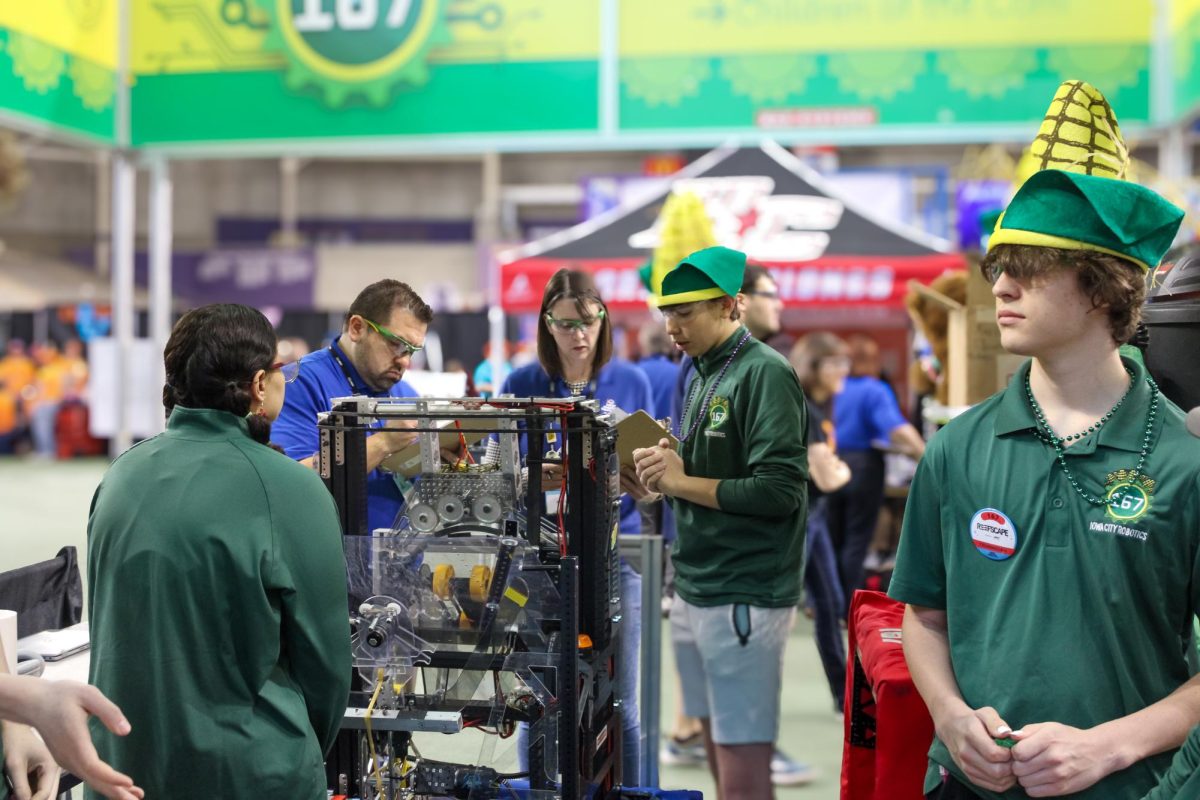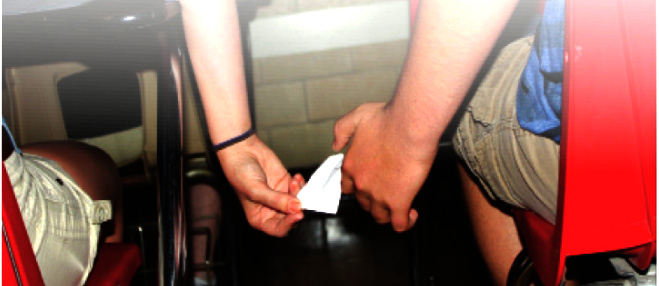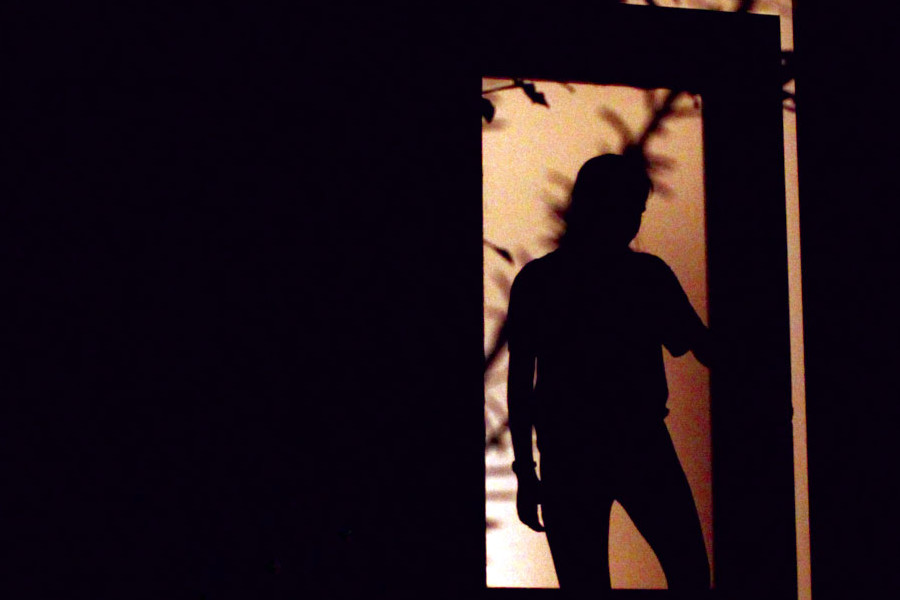It happens in every class. A teacher stands at the front of the room, while students look down, feverishly trying to determine the answer. But as soon as the teacher turns his back, eyes dart to a neighbor’s paper, at a cheat sheet hidden up a sleeve, or a picture on a phone. For many students at City High, cheating is becoming an accepted norm.
“It’s so easy to cheat, it is normal to cheat. People don’t even think about it. Cheating has become part of how we work,” Kelly* said. “I feel like I cheat about once a day, and that’s horrible, but I don’t feel bad about it at all.”
Cheating used to be considered risky business, with consequences of expulsion. Now clammy hands and distressed eyes aren’t a state cheaters are in for long.
“It’s sad because it is the normal thing to do, cheating is not that big a deal,” Tyler* said. “People overload themselves, when it gets time for tests people stress out. Why would someone study for three hours each for five tests, when they could study for one and rely on someone else for the answers on the other tests.”
When other students see cheating happening in their class they don’t care enough to say something.
“It’s really sad to me because I don’t care. It has become a part of our society, it’s just cheating, and no one feels bad and turns others in,” Kelly said. “Whether you’ve taken their worksheets, copied an answer on a test, you’ve at least taken a peek at their test, everyone cheats.”
Teachers have a very different view on cheating from students. As educators with high expectations, the notion that everyone cheats is very disheartening.
“When I catch a student it makes me feel extremely disappointed, because the second you catch a student cheating they’ve lost your trust. That’s it,” Senora Hall, a Spanish teacher at City High said. “The relationship changes forever. You know that that student cheats, and from then on everything they do is a little bit suspect.”
Most students though, don’t think about the the long term consequences cheating brings. They just think about the grade.
“I feel like a lot of people would not be passing classes if cheating didn’t exist,” Kelly said. “There have been many times when I copied homework, and I don’t go back and try to learn it. Cheating allows me to get by, but I don’t really learn anything.”
The problem of cheating may be the result of pressures our society puts on getting good grades in order to be accepted at a prestigious college.
“We focus so much on having a high GPA. People are willing to cheat to get the grade,” Tyler said. “It’s society’s fault. No matter how hard you pay attention or do your homework, there is going to be something you can forget. It’s not always a lack of preparation.”
Teachers, on the other hand, believe that a student should be responsible by going in to ask for help if they don’t know the material.
“I think it’s probably because of a lot of laziness, and the easiness,” Hall said. “Sometimes they’re just struggling with the material or on overload, and don’t have time to understand and do all the studying. It’s just easier to copy someone’s paper.”
This thought is also shared with math teacher, Mr. Carhoff, who has caught many students before.
“Everyone wants to have fast answers. Working for something is difficult. People want to know the correct answer fast,” he said. “I think that has transferred to cheating, too. People don’t want to work for the answer when they can get it fast.”
Students are always sneaky about cheating. Whether it’s by writing answers between their fingers, asking other students what’s on the test, or copying someone’s worksheet. Technology has made the world of cheating even more advanced.
“Phones have made it super easy to communicate with one another,” Tyler said. “Communication can be hidden. People can take photos of test questions and send it to their friends. I’ve seen kids text each other answers and questions they don’t know.”
Catching students in the act is becoming more challenging with the use of cell phones and clever tricks students devise. Most teachers at City High try to minimize cheating by having different test copies and arranging the class so as to prevent wandering eyes.
“I have a routine. Usually the classroom is in a horseshoe, but I put them in rows so they can’t look off of each other’s paper,” Hall said. “We even have a silly ritual where students have to show me their palms to make sure they haven’t written anything on their hands. This just establishes a serious environment for a test. “
Senora Hall says that she has caught students who were using cheat sheets, writing on desktops, and peaking at the desk next to them. She thinks teachers should teach a “work ethic and develop ideas of honesty and integrity that permeate your life forever.” This idea is why she has such strong feeling about cheating.
“If you’re copying then you’re not learning and that’s what teachers are here for. Students have to see that if they cheat and a teacher notices, it does make a difference,” Hall said. “A little bit of embarrassment and humiliation maybe isn’t a bad thing if it teaches them how to manage their life with more honesty and integrity.”
Follow these links for more information:
www.webmd.com/fitness-exercise/features/what-makes-people-cheat
www.nytimes.com/2011/12/02/education/on-long-island-sat-cheating-was-hardly-a-secret.html?pagewanted=all
www.abcnews.go.com/Primetime/story?id=132376&page=1



























